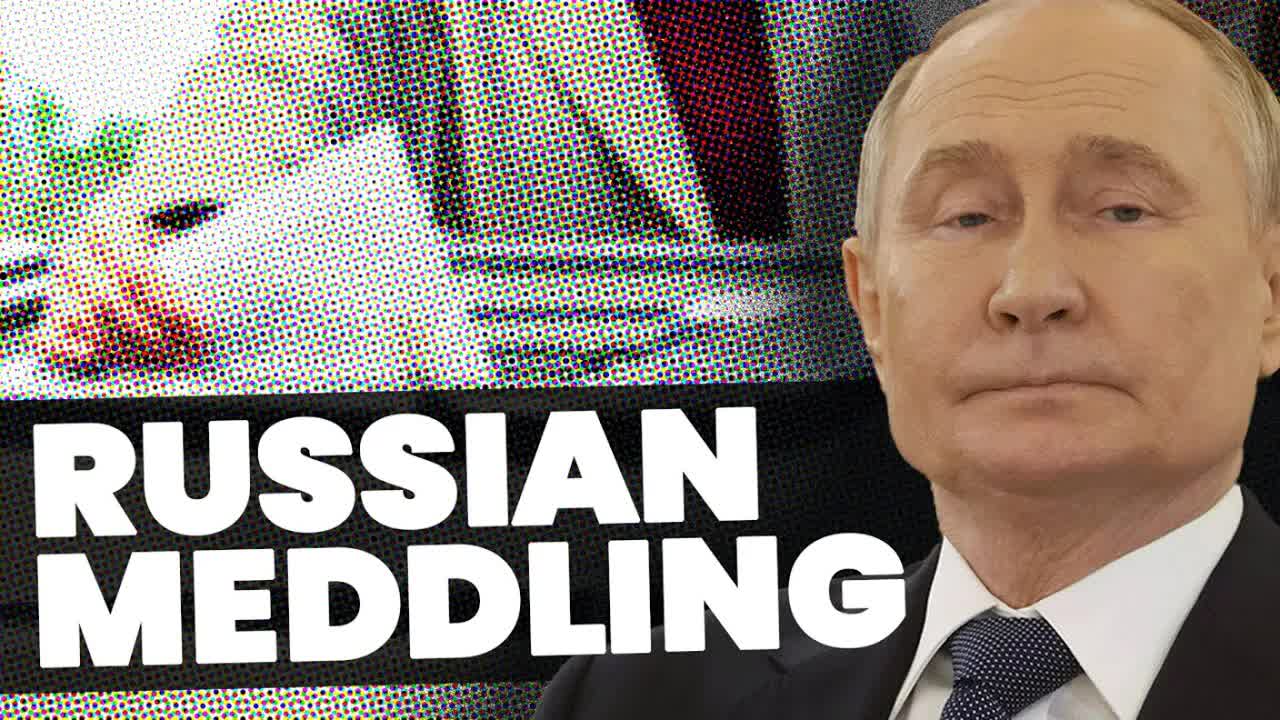In a tense political atmosphere, Moldova finds itself at a crossroads, grappling with the implications of a closely contested referendum on EU membership.
Many in this small Eastern European nation believe that the only reason Russia has not yet invaded is due to the Ukrainian army’s steadfast defense, which prevents Russian forces from advancing towards Moldova’s borders.
The situation is further complicated by the long-standing Russian occupation of Transnistria, a breakaway region that has been under foreign control for decades.
Moldova’s President, Maia Sandu, has voiced concerns about external influences impacting the referendum results, specifically pointing fingers at Russia.
With nearly half of the votes counted, the results are alarmingly close, hovering around a 50-50 split between those in favor of EU integration and those against it.
As international observers analyze the situation, the question remains: have the votes been manipulated?
Ukrainian MP Alexey Goncharenko, currently in Moldova as an observer for the Council of Europe, believes that the final outcome will tilt towards EU accession.
He predicts that once all votes are tallied, the results will show a slight majority in favor of joining the European Union, estimating figures close to 51% for and 49% against.
This close call highlights the division within Moldovan society regarding its future direction.
The accusations of foreign interference are serious.
Sandu has alleged that Russian operatives attempted to sway the vote through financial incentives and disinformation campaigns.
While Russia has denied these allegations, the perception of a divided electorate remains palpable.
The numbers reflect a nation torn, with skepticism about EU membership prevalent among a significant portion of the population.
Goncharenko points out that while there is a visible divide, it does not necessarily mean that those opposing EU integration are pro-Russian.
He likens the situation to Brexit, suggesting that skepticism does not equate to support for Russia.
This nuance is critical as Moldova navigates its complex geopolitical landscape, where Russian influence looms large.
The stakes are high for Moldova, a country grappling with poverty and seeking stability.
The ongoing conflict in Ukraine has heightened awareness and urgency regarding national security.
The Moldovan public has largely embraced Ukraine, welcoming hundreds of thousands of refugees during the crisis.
This solidarity underscores a shared understanding of the threats posed by Russian aggression.
Despite the challenges, many Moldovans remain hopeful about their future.
The recent elections also served as a litmus test for President Sandu, who is expected to secure a place in the upcoming runoff election against her main rival, Aleksandr Stoyanoglou, a pro-Russian candidate.
Early results suggest Sandu may garner around 43-44% of the vote, while Stoyanoglou trails with approximately 25%.
The referendum and elections are intertwined, reflecting broader sentiments about Moldova’s alignment with the West.
Sandu has accused a criminal network of attempting to undermine the democratic process, claiming that around 300,000 individuals were targeted for vote-buying schemes.
Reports indicate that these tactics involved payments funneled through Russian banks, further complicating the political landscape.
As the dust settles from the elections, analysts note that the war in Ukraine has accelerated Moldova’s push towards EU integration.
Both Moldova and Ukraine have recently achieved candidate status with the EU, marking a significant step in their respective journeys toward membership.
This momentum has reignited discussions about national identity and the future direction of the country.
While the results of the referendum remain uncertain, the implications are clear.
The Moldovan people are grappling with their national identity amidst external pressures.
The upcoming runoff election will be crucial in determining whether the nation leans towards deeper ties with Europe or succumbs to the allure of Russian influence.
As Moldova navigates this tumultuous period, the world watches closely.
The outcomes of these political maneuvers could reshape the region’s geopolitical landscape, with Moldova standing at the forefront of a pivotal moment in its history.
The interplay of domestic sentiment and foreign influence will undoubtedly play a significant role in shaping the future of this resilient nation.































